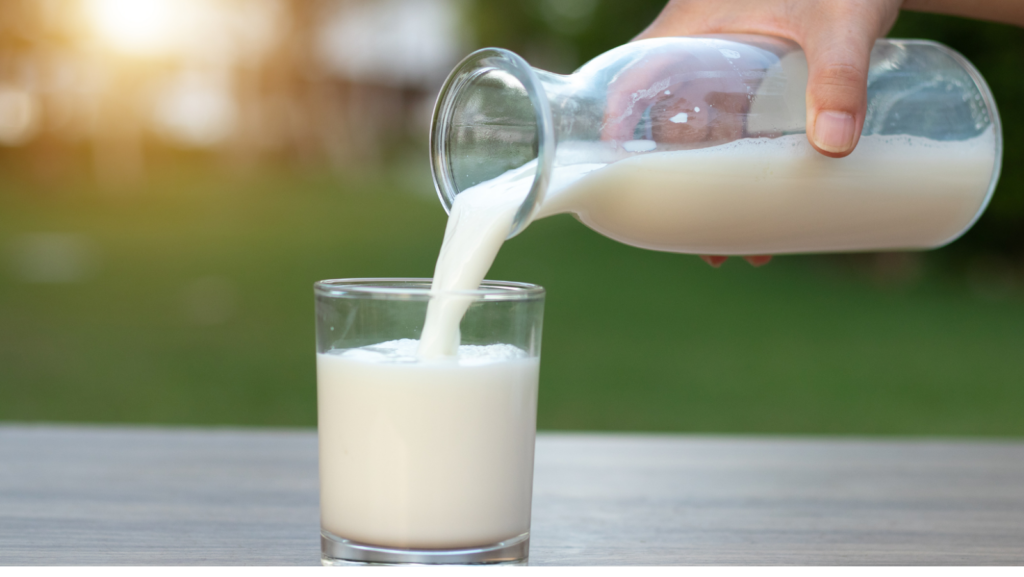
Looking to lose weight on the keto diet? You might want to think twice before reaching for that glass of whole milk.
Is whole milk keto
While some dairy products are keto-friendly, whole milk is not one of them. Whole milk is high in carbs and sugar, which can kick you out of ketosis and make it harder to lose weight. However, there are some low-carb dairy options that can help you stay on track. So if you’re looking to lose weight on the keto diet, ditch the whole milk and try one of these keto-friendly dairy products instead.
What is whole milk?
Whole milk is a type of milk that has not had any of its cream removed. It is the highest-fat type of milk available, with about 3.5% milk fat. Whole milk also contains vitamins A and D, as well as calcium, phosphorus, and other minerals.
Why whole milk is good for you?
Whole milk is a great source of nutrients like calcium, vitamin D, and phosphorus. It also contains conjugated linoleic acid (CLA), a type of fat that has been linked to various health benefits.
Whole milk is higher in calories and fat than other types of milk, but it also provides more nutrients. This makes it an excellent choice for people who are trying to lose weight or build muscle.
How whole milk can help you lose weight
Whole milk is a great source of nutrients like calcium, vitamin D, and phosphorus. It also contains conjugated linoleic acid (CLA), a type of fat that has been shown to help with weight loss. CLA is found in small amounts in other foods like beef and lamb, but whole milk has more CLA than any other food. A 2008 study found that people who consumed the most CLA had a lower body mass index (BMI) and waist circumference than those who consumed the least.
Whole milk is also a good source of protein, which is important for weight loss. A high-protein diet can help you lose weight by reducing your appetite and making you feel fuller for longer. In one study, people who consumed a high-protein diet lost more weight and fat mass than those who ate a normal-protein diet.
So if you’re looking to lose weight, whole milk may be a good choice. Just be sure to watch your portion sizes, as too much whole milk can lead to weight gain.
What are the benefits of drinking whole milk?
Whole milk is a delicious and nutritious way to help you reach your weight loss goals. While it is true that whole milk contains more fat than skim milk, it also contains essential nutrients that can help you lose weight and keep it off.
How to make whole milk part of your diet?
Whole milk is a great source of nutrients and can be part of a healthy diet. However, if you’re trying to lose weight, you may want to limit your intake of whole milk.
Whole milk is high in calories and fat, and it can be hard to control your portion size when you’re drinking it. If you’re looking to lose weight, you may be better off drinking skim milk or low-fat milk. You can also use whole milk in recipes, but be sure to account for the extra calories.
What are some tips for incorporating whole milk into your diet?
Whole milk is a great source of protein, calcium, and other essential nutrients. While it is higher in fat than other types of milk, whole milk can still be part of a healthy diet. Here are some tips for incorporating whole milk into your diet:
-Choose whole milk that has been fortified with vitamin D.
-Add whole milk to your cereal or oatmeal instead of water or low-fat milk.
-Make a smoothie with whole milk, frozen berries, and a banana.
-Use whole milk when cooking or baking to add creaminess and richness to recipes.
-Add a splash of whole milk to your coffee or tea instead of cream or sugar.
How much whole milk should you drink per day?
It depends on your calorie needs and daily carb intake, but generally, you can drink up to 1-2 cups (240-480ml) of whole milk per day if you’re following a ketogenic diet.
Whole milk is a good source of fat and protein, and it can help you feel fuller for longer. Plus, it contains all the nutrients of cow’s milk, including calcium, phosphorus, vitamin A, and vitamin D.
If you’re trying to lose weight on a keto diet, aim for 1 cup (240ml) of whole milk per day. This amount will provide you with about 5% of your daily calories from carbohydrates.
Are there any risks associated with drinking whole milk?
Whole milk is a good source of several nutrients, including calcium, vitamin D, and potassium. It also contains fat and cholesterol. For this reason, some people worry that drinking whole milk may contribute to weight gain or heart disease.
Fortunately, there is no evidence to support these concerns. In fact, several studies have shown that drinking whole milk may actually help you lose weight (1, 2).
One study looked at the diets of 6,498 adults over a period of 16 years. Those who drank more than three glasses of milk per day were significantly less likely to be overweight or obese than those who drank less than one glass per day (3).
Another study followed 574 overweight adults for 12 weeks. Those who consumed three servings of dairy per day (including whole milk) lost more weight and body fat than those who consumed the same amount of calories but without dairy (4).
These results suggest that drinking whole milk may help you lose weight, rather than cause weight gain. However, it’s worth noting that these studies only looked at associations between milk intake and weight change. They cannot prove that milk caused the weight loss.
What are some other ways to lose weight?
There are many things you can do to lose weight. Some people may opt to go on a diet, while others might try changing their lifestyle or eating habits.
Here are some helpful tips for losing weight:
-Eat a healthy diet. Eating healthy foods (fruits, vegetables, lean protein, whole grains, and healthy fats) can help you lose weight and keep it off. Avoid processed foods, sugary drinks, and excessive amounts of saturated and unhealthy fats.
-Get regular exercise. Exercise not only helps you burn calories, but can also help to boost your metabolism and reduce body fat. aim for at least 30 minutes of moderate-intensity exercise (such as brisk walking) most days of the week.
-Try weight loss supplements. If you are having trouble losing weight through diet and exercise alone, you may want to try using weight loss supplements. These can help to boost your metabolism and give you more energy, which may help with weight loss. However, it is important to speak with a doctor before taking any supplements, as they may not be suitable for everyone.










